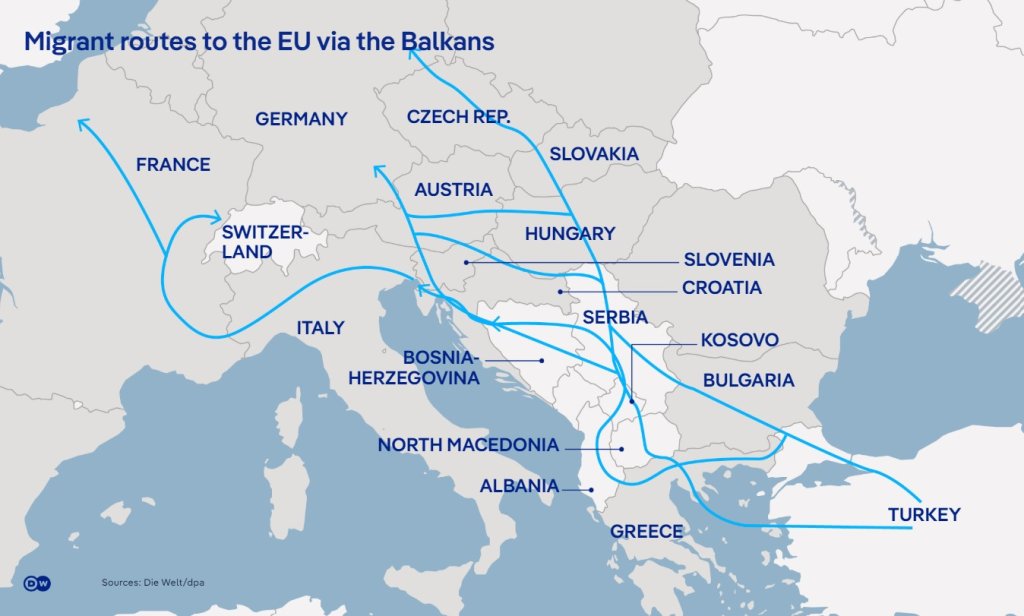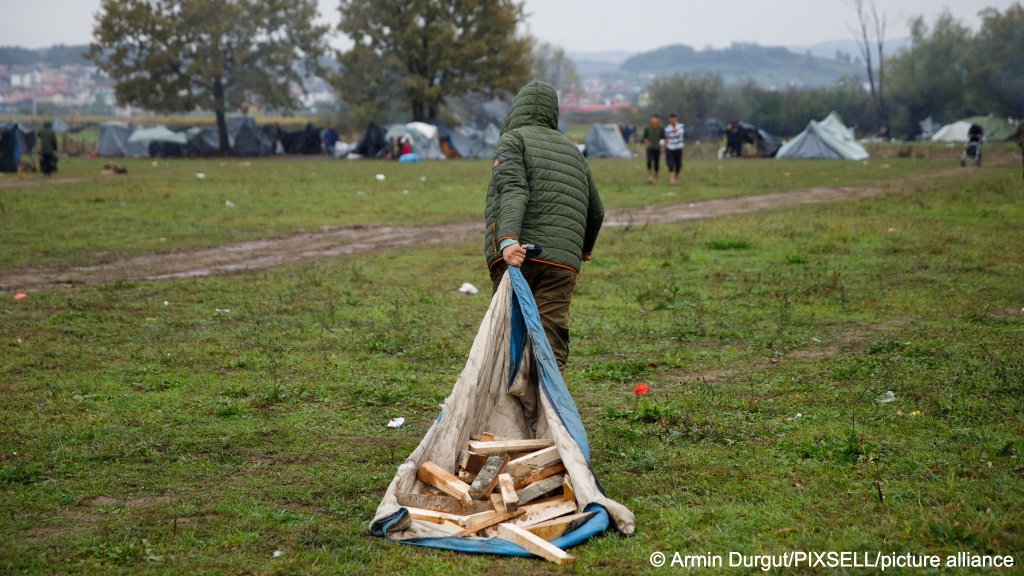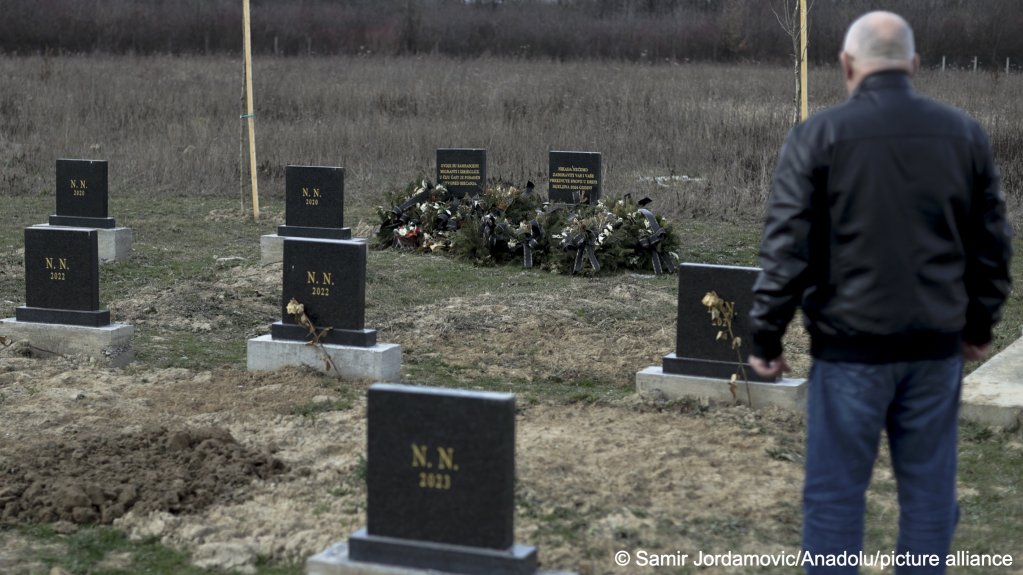The European Union has reached an agreement with the government of Bosnia and Herzegovina to launch joint operations to monitor the country’s border in a bid to curb irregular migration. The Balkan nation shares nearly 1,000 kilometers of border with EU member Croatia and is considered a popular migrant route into the bloc.
A new agreement between Bosnia and the EU's border agency Frontex is designed to facilitate the deployment of Frontex officials to Bosnia's borders and airports, according to a statement by the European Commission.
"Stepping up the cooperation on border management is a key element of the EU's engagement with Western Balkan partners, preventing irregular border crossings and strengthening the security of the region," the statement said.
While the agreement still needs to be ratified by both the European Parliament and lawmakers in Bosnia, it can already be implemented, meaning that Frontex agents could be deployed to the area within weeks.
Read AlsoPassing through: Croatia's 'invisible migrants'
Frontex: Focus on strengthening the EU's external borders
Frontex is already involved in a similar fashion in other non-EU nations: Moldova, Serbia, Montenegro and Albania all have cooperation agreements with the EU agency to manage irregular border crossings in the bloc.
These deployments have resulted in a drop in irregular entries into the EU from 145,600 in 2022 to 21,250 by 2024, according to the European Commission, and a further drop of 58 percentage points in the first four months of this year.

In a separate development in recent weeks, the United Kingdom has also started exploring ways to cooperate more closely with governments in the Balkans to prevent migrants from eventually reaching its shores -- albeit not with the Bosnian government.
Britain left the European Union in what is commonly referred to as "Brexit" in 2020, and is therefore not part of any EU initiatives to curb irregular migration patterns.
Read AlsoUK Foreign Minister visits Western Balkans and agrees further migration deals
Stuck in the Balkans
Thousands of people continue to use the land route across the Balkans in hopes of reaching Europe. The route is particularly popular among Afghan and Bangladeshi nationals, who often get stuck in Bosnia, unable to succeed in crossing into the EU.
With limited social services available to would-be asylum seekers in the EU, many end up sleeping rough in towns and villages located near the Croatian border.
Read AlsoBosnia: More migrants taking the Balkan route once again

During the summer months each year, the number of migrant arrivals in the region tends to peak, though various measures taken by the European Union along this part of it external border as well as elsewhere have led to a dramatic decrease; a decade ago, hundreds of thousands of people had used this route to get to central Europe at the height of the so-called refugee crises.
Meanwhile, in the winters, there have been reports from the Bosnian border region of people suffering frostbite, amputated limbs, and deaths from the cold.
However, there has also been a great deal of criticism against the EU and its partners in the fight against irregular crossings in this region, with many human rights groups accusing authorities of using heavy-handed methods and illegal push-backs, denying people their right to file asylum claims.
Read Also'The border guards beat migrants': How EU border pushbacks are becoming banalized
Deadly journeys
The journey through the Balkans is perilous throughout the year.
In August 2024, 12 people drowned in the Drina, a border river between Serbia and Bosnia, including a 9-month-old baby and its mother.
Less than a month later, 14 migrants were injured in an accident when their van attempted to escape a police patrol in Croatia near the border with Bosnia. Half of the passengers of that vehicle were underage.
Dozens of other instances of injuries and deaths have gone unreported throughout the region, or investigations have been called off.
There are also repeated reports of smuggling gangs operating in the region holding migrants hostage for extortion and ransom purposes.

with AFP
